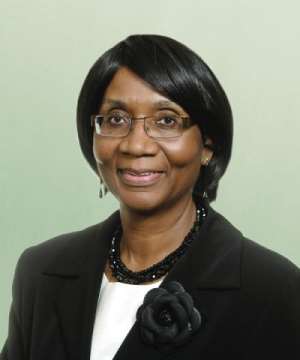
Professor Stella Nkomo, a Lecturer in Human Resource Management, University of Pretoria, SA, has called on Africa's leaders to make the study of Social Entrepreneurship a mandatory module for both undergraduate and postgraduate students.
She explained that the curriculum would help manage the Continent's educational system to support Africapitalism, an economic philosophy embodying the private sector's commitment to the economic transformation of Africa.
Prof. Nkomo said Social Entrepreneurship was important because it provided a framework for businesses to find their own success in the pursuit of helping others.
She made the call in Accra at a lecture on the topic; 'Africapitalism Management Education in Africa: Propositions and Aspirations.'
Prof. Nkomo proposed a multi-disciplinary curriculum for Africa's educational system to give opportunities for students to learn a wide range of issues from other countries to be competitive in the market world.
'The module must also include a well-informed discussion of culture and identity in Africa rooted in the philosophy to recognise its heterogeneity and the negative side of ethnicity,' she said.
She expressed concern about the ways western ideas and knowledge dominated the curriculum and learning materials for nurturing Africa's managers and leaders, and said that must change.
Prof. Nkomo said Africapitalism offered an alternative corporate culture that allowed firms to strive for profit-making, but not for the exploitation of human beings because the ultimate goal of self-enrichment was to improve the community.
She said Africapitalism was underpinned by four cardinal values: sense of progress and prosperity, sense of parity, sense of peace and harmony, and sense of place and belongingness.
Prof. Nkomo explained that prosperity was more than the absence of poverty; it means 'addressing sustainable development and careful husbandry of the world's resources, while recognising the rights of developing countries to break out from poverty.'
She urged African leaders to understand the current global geopolitical context to be able to transform education on the Continent, since it played a pivotal role in the development of a country.




 2024 elections: Resign if you can't be faithful to party - Sagnarigu NDC PC desc...
2024 elections: Resign if you can't be faithful to party - Sagnarigu NDC PC desc...
 Five arrested, remanded over alleged murder of two police officers at Transacco
Five arrested, remanded over alleged murder of two police officers at Transacco
 Tax exemptions better than incentives for churches – Tax Analyst tell Bawumia
Tax exemptions better than incentives for churches – Tax Analyst tell Bawumia
 Transport Minister sues Law Platform Editor for defamation
Transport Minister sues Law Platform Editor for defamation
 Voter registration: Police arrest NPP Treasurer for Mpohor for registering minor
Voter registration: Police arrest NPP Treasurer for Mpohor for registering minor
 "This nonsense must stop" — Lawrence Tetteh vows to march to Jubilee House over ...
"This nonsense must stop" — Lawrence Tetteh vows to march to Jubilee House over ...
 2024 elections: “If indeed you stand for peaceful elections the time is now for ...
2024 elections: “If indeed you stand for peaceful elections the time is now for ...
 I have the attributes to be president of this country — Bernard Monarh
I have the attributes to be president of this country — Bernard Monarh
 Cecilia Dapaah saga: ‘Turf war’ between AG, EOCO, OSP indicates they’re not ‘cor...
Cecilia Dapaah saga: ‘Turf war’ between AG, EOCO, OSP indicates they’re not ‘cor...
 Ghana will become the first African country to embrace blockchain-powered gover...
Ghana will become the first African country to embrace blockchain-powered gover...
